
Bokeh derives from the Japanese word ‘boke’, which means blur. It’s used in the photography industry to describe the out-offocus specular highlights you see time and time again in images, such as portraits or still life.
Bokeh is often achieved by focusing on a subject that’s separated from a concentrated light source (like a string of LED lights). By shooting at a wide aperture to create a shallow depth of field, lights in the background blur into prominent blobs of bokeh. Narrower apertures are still capable of capturing bokeh, but the superwide apertures of fast lenses are known for producing the creamy depths of field where these attractive specs of blur thrive.
Not all bokeh is exactly the same shape though. You may notice images with spherical, hexagonal, or even pentagonal forms of bokeh. The shape is determined by a number of factors including the number of aperture blades in a lens, the shape of those aperture blades, and the aperture being used. It’s therefore possible to manipulate bokeh shapes by introducing a whole new aperture.
In this tutorial we’re going to show you how to make an aperture disc that will sit on the front element of your lens and transform the bokeh you capture. We created a simple love heart, but you can use almost any shape you like. All you need is some thick black paper and a few craft utensils.
Make a DIY aperture disc
1 Black card
Denne historien er fra July 2020-utgaven av N-Photo: the Nikon magazine.
Start din 7-dagers gratis prøveperiode på Magzter GOLD for å få tilgang til tusenvis av utvalgte premiumhistorier og 9000+ magasiner og aviser.
Allerede abonnent ? Logg på
Denne historien er fra July 2020-utgaven av N-Photo: the Nikon magazine.
Start din 7-dagers gratis prøveperiode på Magzter GOLD for å få tilgang til tusenvis av utvalgte premiumhistorier og 9000+ magasiner og aviser.
Allerede abonnent? Logg på
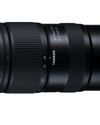
Tamron 28-75mm f/2.8 Di III RXD G2
The original version broke the mould for ‘trinity' standard zooms. The G2 enhances handling and performance further still
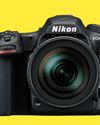
Nikon D500
Nikon's flagship DX-format DSLR is a modern classic. And while it hasn't been out of production for long, it left a hole in Nikon's camera line-up that's never been filled

Laurence Griffiths
With so much sporting action this summer, Laurence Griffiths of Getty Images reveals how to catch every goal at the Euros, details Getty Images' 24/7 Olympics coverage and why he always has a wide-angle ready. Keith Wilson managed to grab him before kick-off...
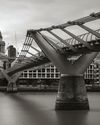
Ghost town
Adam Waring uses ND filters to subdue the hustle and bustle when shooting busy cities
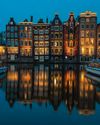
Creative cities
Experienced travel photographer Matt Higgs provides top tips for stunning shots of city sights
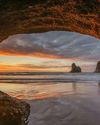
If at first you don't succeed...
Tom travels to the other side of the world to have another go at shooting an elusive image and displays the power of his perseverance
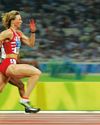
Shoot the summer of sports
Have the Olympics and Euros inspired you to photograph sport? Mike Harris shows you how to score a portfolio of top shots
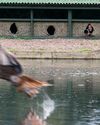
Osprey & prey
Birds of a feather Gary Jones and Leigh Pugh photograph ospreys from a purpose-built hide
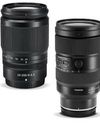
Superzoom lenses
These lenses will have you in for a long stretch, some more than others in the wide-angle to telephoto stakes
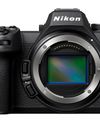
Nikon Z 6III
With a revolutionary 'partially stacked' full-frame sensor, the Z 6III fits flagship camera features in an compact enthusiast-level body